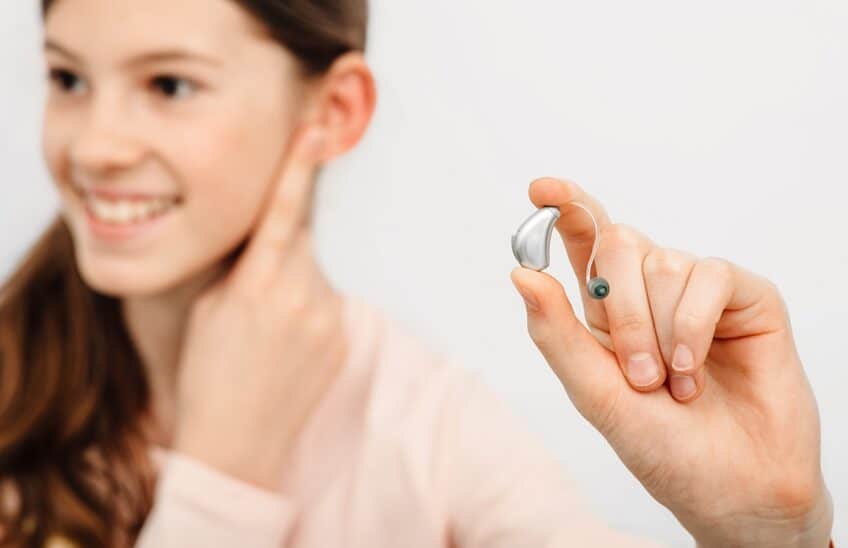Preparing to get your hearing aids is an exciting time! Hearing aids are incredibly important devices that provide ample support for millions of people with hearing loss. After having your hearing comprehensively evaluated, you will receive your hearing aids during the follow-up appointment, known as the hearing aid fitting. During this appointment, your device will be programmed with settings that meet your specific hearing needs. A useful way you can prepare for your hearing consultation fitting appointments is by preparing a list of questions which can include the following:
- What type of hearing loss do I have? During your hearing consultation appointment, your hearing will be assessed. Hearing tests identify the type and degree of hearing loss you are experiencing. There are three types of hearing loss: sensorineural, conductive, and mixed. Sensorineural hearing loss is the most common type, occurring in the inner ear and resulting in permanent hearing damage. Conductive hearing loss occurs in the middle ear as a result of physical obstructions which leads to temporary hearing loss. Mixed is a combination of both sensorineural and conductive hearing loss.
- Do I have hearing loss in both ears? A hearing test measures hearing capacities in both ears. It is not uncommon for hearing to be different from one ear to the other. Your hearing test results will show the specific hearing needs for each ear. This includes the degree of impairment in each ear as well as the types of sounds that may be more challenging for you to hear.
- Do I need to wear two hearing aids? This is an important question to discuss with your hearing healthcare provider. While you may assume that you do not need two hearing aids, it is actually more common than just one. It is estimated that 90% of people need two hearing aids. This actually provides more support for the brain, making it easier and more comfortable to hear and process sound.
- What type of hearing aid is best for me? After your hearing needs are established. Your hearing healthcare provider will help you navigate your hearing aid options. There is a wide range of options that have varying styles, features, and technologies designed to deliver enhanced sound quality and increased connectivity. The specialist you are working with will use a few important factors to recommend devices that could be best for you. This includes type and degree of hearing loss, lifestyle factors like the types of environments you navigate regularly (work, social), and interest in technologies.
- How do I maintain my hearing aids? During the hearing aid fitting, you will be trained on how to best use and maintain your hearing aids. Hearing aid maintenance is key to their longevity and performance. Developing a maintenance routine is a critical way to best care for your device. This should include thoroughly cleaning them nightly and drying them out overnight. Talk to your hearing healthcare provider about the specific supplies you’ll need to do this effectively.
- When do I change the battery? All hearing aids are operated by either rechargeable or disposable batteries. If your hearing aids use disposable batteries, be sure to ask about the specific type of batteries your device uses and when they should be changed. You may need to swap out batteries weekly, depending on your device.
- Are there other technologies I should know about? There are several technologies and features today’s hearing aids offer. This includes digital noise reduction, voice recognition, tinnitus management, sound localization, and wireless connectivity. It is important to discuss these features so you can identify what you would most benefit from.
- Is there a trial period and warranty plan? Many hearing aids provide a trial period which you can utilize to test out a device you are interested in. This can help you determine which hearing aid is best for you. Additionally, it is important to ask about a warranty plan. Hearing aid manufacturers often offer different warranty plans so make sure you know what type of coverage you have.
Hearing aids are an important investment in your health and wellness. Asking these questions can help you navigate your options as well as effectively maintaining hearing aids. Contact us to learn more!


